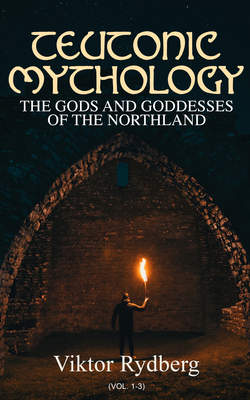Читать книгу Teutonic Mythology: The Gods and Goddesses of the Northland (Vol. 1-3) - Viktor Rydberg - Страница 29
На сайте Литреса книга снята с продажи.
17.
THE FRANKISH MIGRATION SAGA.
ОглавлениеTable of Contents
We have already stated that the Frankish chronicles, unlike those of the other Teutonic tribes, wholly ignore the traditions of the Franks, and instead present the scholastic doctrine concerning the descent of the Franks from Troy and the Mœotian marshes. But I did not mean to say that we are wholly without evidence that another theory existed among the Franks, for they, too, had traditions in harmony with those of the other Teutonic tribes. There lived in the time of Charlemagne and after him a Frankish man whose name is written on the pages of history as a person of noble character and as a great educator in his day, the abbot in Fulda, later archbishop in Mayence, Hrabanus Maurus, a scholar of the distinguished Alcuin, the founder of the first library and of the first large convent school in Germany. The fact that he was particularly a theologian and Latinist did not prevent his honouring and loving the tongue of his fathers and of his race. He encouraged its study and use, and he succeeded in bringing about that sermons were preached in the churches in the Teutonic dialect of the church-goers. That a Latin scholar with so wide a horizon as his also was able to comprehend what the majority of his colleagues failed to understand—viz., that some value should be attached to the customs of the fathers and to the old memories from heathen times—should not surprise us. One of the proofs of his interest in this matter he has given us in his treatise De invocatione linguarum, in which he has recorded a Runic alphabet, and added the information that it is the alphabet used by the Northmen and by other heathen tribes, and that songs and formulas for healing, incantation, and prophecy are written with these characters. When Hrabanus speaks of the Northmen, he adds that those who speak the German tongue trace their descent from the Northmen. This statement cannot be harmonised with the hypothesis concerning the Asiatic descent of the Franks and other Teutons, except by assuming that the Teutons on their immigration from Asia to Europe took a route so far to the north that they reached the Scandinavian peninsula and Denmark without touching Germany and Central Europe, and then came from the North to Germany. But of such a view there is not a trace to be found in the middle age chronicles. The Frankish chronicles make the Franks proceed from Pannonia straight to the Rhine. The Icelandic imitations of the hypothesis make Odin and his people proceed from Tanais to Saxland, and found kingdoms there before he comes to Denmark and Sweden. Hrabanus has certainly not heard of any such theory. His statement that all the Teutons came from the North rests on the same foundation as the native traditions which produced the sagas in regard to the descent of the Longobardians, Saxons, and Swabians from the North. There still remains one trace of the Frankish migration saga, and that is the statement of Paulus Diaconus, made above, concerning the supposed identity of the name Ansgisel with the name Anchises. The identification is not made by Paulus himself, but was found in the Frankish source which furnished him with what he tells about the ancestors of Charlemagne, and the Frankish source, under the influence of the hypothesis regarding the Trojan descent of the Franks, has made an emigration leader mentioned in the popular traditions identical with the Trojan Anchises. This is corroborated by the Ravenna geographer, who also informs us that a certain Anschis, Ansgisel, was a Teutonic emigration leader, and that he was the one under whose leadership the Saxon tribes left their old homes. Thus it appears that, according to the Frankish saga, the Franks originally emigrated under the same chief as the Saxons. The character and position of Ansgisel in the heathen myth will be explained in No. 123.
